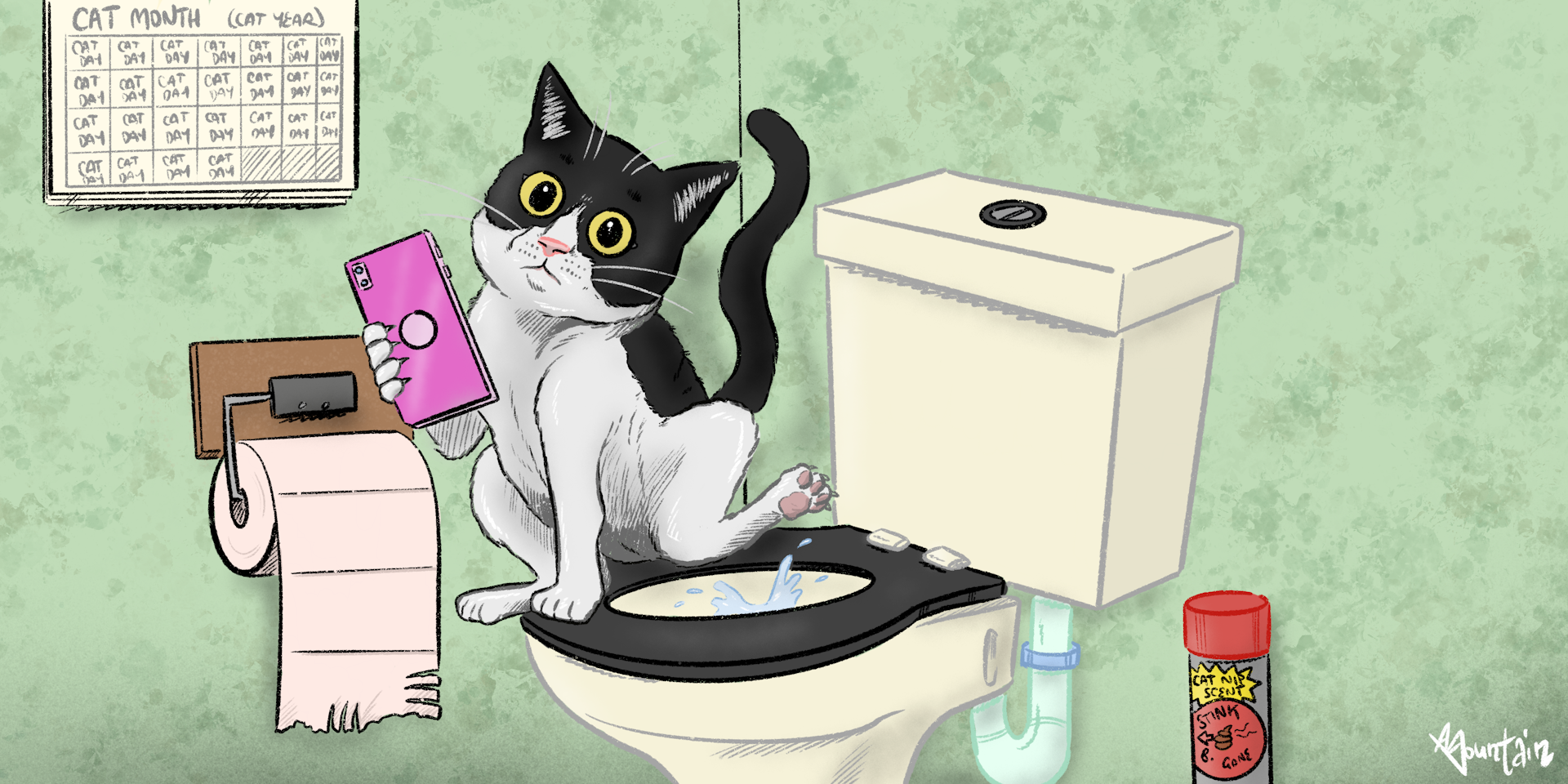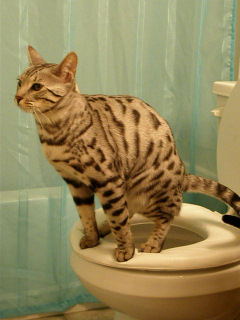Don't Flush Cat Poop Down Your Toilet - Maintain Your Home's Pipe System
Don't Flush Cat Poop Down Your Toilet - Maintain Your Home's Pipe System
Blog Article
Just about every person maintains their unique way of thinking involving Don’t flush cat feces down the toilet.

Intro
As feline owners, it's vital to bear in mind exactly how we take care of our feline close friends' waste. While it might seem hassle-free to flush pet cat poop down the toilet, this method can have damaging repercussions for both the setting and human health and wellness.
Alternatives to Flushing
Luckily, there are more secure and much more accountable methods to deal with cat poop. Think about the complying with choices:
1. Scoop and Dispose in Trash
One of the most usual approach of dealing with cat poop is to scoop it right into a naturally degradable bag and toss it in the trash. Make sure to utilize a committed clutter scoop and deal with the waste promptly.
2. Use Biodegradable Litter
Go with biodegradable feline litter made from products such as corn or wheat. These litters are environmentally friendly and can be securely taken care of in the garbage.
3. Bury in the Yard
If you have a lawn, think about hiding pet cat waste in a designated location far from veggie yards and water sources. Be sure to dig deep adequate to stop contamination of groundwater.
4. Mount a Pet Waste Disposal System
Invest in a pet dog waste disposal system specifically developed for pet cat waste. These systems make use of enzymes to break down the waste, decreasing odor and ecological influence.
Wellness Risks
Along with ecological problems, flushing pet cat waste can also pose health threats to human beings. Feline feces may contain Toxoplasma gondii, a bloodsucker that can create toxoplasmosis-- a possibly extreme health problem, specifically for expecting women and individuals with damaged immune systems.
Environmental Impact
Flushing pet cat poop introduces hazardous microorganisms and bloodsuckers into the water system, positioning a significant risk to aquatic ecosystems. These contaminants can negatively affect aquatic life and concession water quality.
Final thought
Accountable pet ownership prolongs beyond giving food and sanctuary-- it also involves appropriate waste monitoring. By avoiding purging feline poop down the commode and selecting alternate disposal techniques, we can decrease our ecological impact and safeguard human health and wellness.
Why You Should Never Flush Cat Poop Down the Toilet
A rose by any other name might smell as sweet, but not all poop is created equal. Toilets, and our sewage systems, are designed for human excrement, not animal waste. It might seem like it couldn’t hurt to toss cat feces into the loo, but it’s not a good idea to flush cat poop in the toilet.
First and foremost, assuming your cat uses a litter box, any waste is going to have litter on it. And even the smallest amount of litter can wreak havoc on plumbing.
Over time, small amounts build up, filling up your septic system. Most litter sold today is clumping; it is made from a type of clay that hardens when it gets wet. Ever tried to scrape old clumps from the bottom of a litter box? You know just how cement-hard it can get!
Now imagine just a small clump of that stuck in your pipes. A simple de-clogger like Drano isn’t going to cut it. And that means it’s going to cost you big time to fix it.
Parasitic Contamination
Believe it or not, your healthy kitty may be harboring a nasty parasite. Only cats excrete Toxoplasma in their feces. Yet it rarely causes serious health issues in the cats that are infected. Most people will be fine too if infected. Only pregnant women and people with compromised immune systems are at risk. (If you’ve ever heard how women who are expecting are excused from litter cleaning duty, Toxoplasma is why.)
But other animals may have a problem if infected with the parasite. And human water treatment systems aren’t designed to handle it. As a result, the systems don’t remove the parasite before discharging wastewater into local waterways. Fish, shellfish, and other marine life — otters in particular — are susceptible to toxoplasma. If exposed, most will end up with brain damage and many will die.
Depending on the species of fish, they may end up on someone’s fish hook and, ultimately on someone’s dinner plate. If that someone has a chronic illness, they’re at risk.
Skip the Toilet Training
We know there are folks out there who like to toilet train their cats. And we give them props, it takes a lot of work. But thanks to the toxoplasma, it’s not a good idea.

I recently found that post on How to Dispose of Cat Poop and Litter Without Plastic Bags while doing a search on the web. Sharing is good. One never knows, you might be doing someone a favor. Many thanks for your time. Don't hesitate to pay a visit to our website back soon.
Call Today Report this page